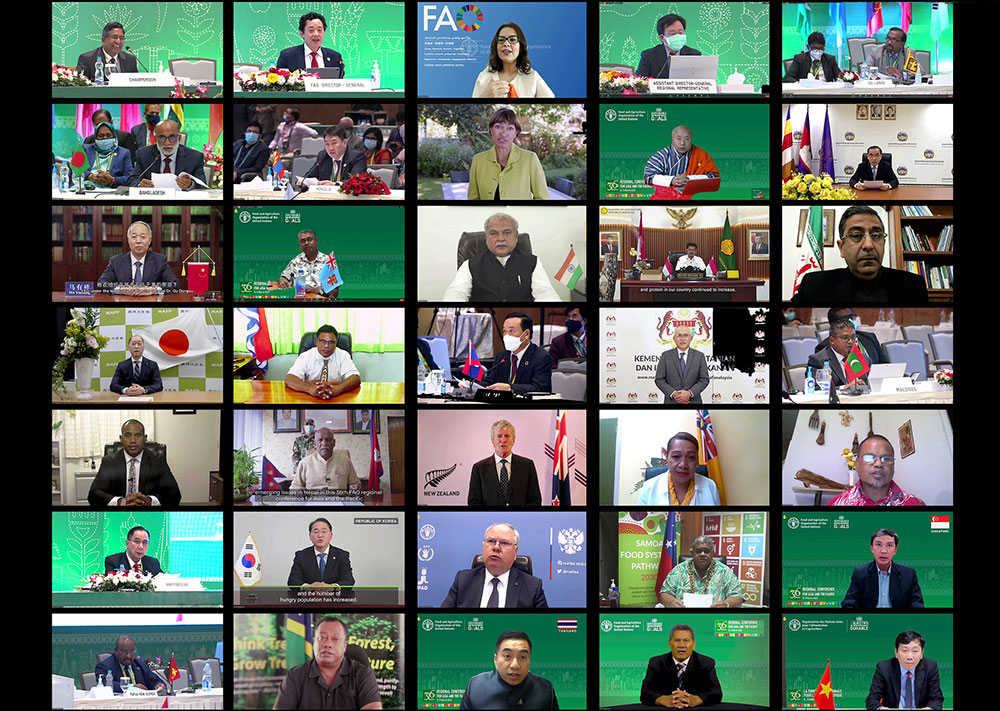Chhimi Dema
The Food and Agriculture Organisation of the United Nations (FAO)’s Hand-in-Hand Initiative in Bhutan is expected to accelerate the agricultural transformation and rural development through evidence-based partnership.
According to FAO, the initiative takes a multilateral approach to accelerate agri-food transformation and sustainable rural development, to strengthen food system capacities to deliver nutrition and healthy diets for everyone and improve household incomes to reduce extreme poverty.
The initiative works towards achieving Sustainable Development Goals 1, 2, and 10 (eradicate poverty, zero hunger, and reduce inequalities respectively).
During the 36th session of the FAO Regional Conference for Asia and the Pacific held on March 9, Sanam Lyonpo Yeshey Penjor said that the initiative is “beginning to take a robust shape”.
He said that the initiative in the country has built a strong team of a technical task force from various ministries, departments and FAO Country Office Bhutan to achieve the envisioned targets under the initiative.
The initiative began in June 2021 and is expected to complete in July 2022.
Under the initiative, two baseline studies were carried out: Food Security and Nutrition, and Agri-food systems.
The study Food Security and Nutrition’s preliminary analytical result showed “production gap and nutrition gaps in current food systems”, according to the records of the Ministry of Agriculture and Forests.
The Agri-food systems study identified entry points on how to diversity and improve food systems.
Lyonpo Yeshey Penjor said that the studies indicated the need to promote agricultural diversification and integrate value chain development for special agro-product through innovation, upgrade processing facilities, increase market access, e-commerce and marketing.
He said: “We have high expectations from the initiative to bring diverse actors together to achieve all of these pathways in a systematic manner, focusing on the least advantaged areas in Bhutan to eradicate poverty, end hunger and malnutrition, and reduce inequalities.”
Four themes—RNR enterprise development and marketing; Climate-smart farming; Food and nutrition security; and Geospatial platform and digitalisation of agricultural spatial data—have been prioritised under the initiative in Bhutan.
Through the initiative, Bhutan is working to join the Global Action on Green Development of Special Agriculture Products: One Country One Product (OCOP), and Digital Village Initiative.
OCOP, according to FAO, aims to develop green and sustainable value chains for special agricultural products, support small and family farmers to reap the full benefits of a global market and ultimately help the transformation of current agri-food systems and the achievement of the Sustainable Development Goals.
Digital Village initiative is an integrated development vision that enshrines digitalisation at the core of rural transformation and prosperity, addressing farm and off-farm socio-economic elements.


